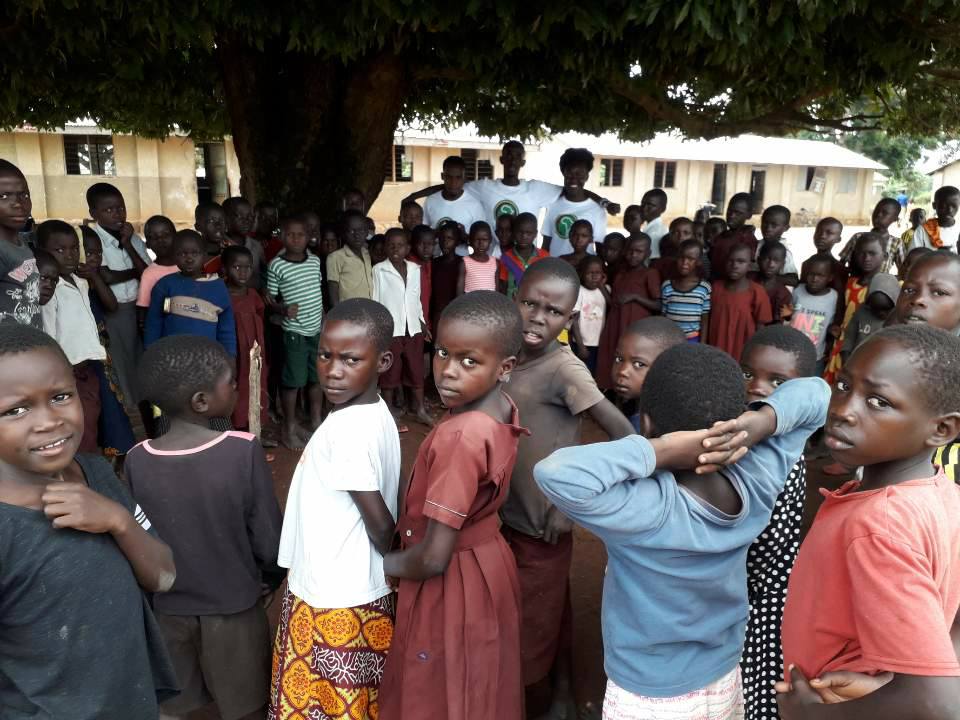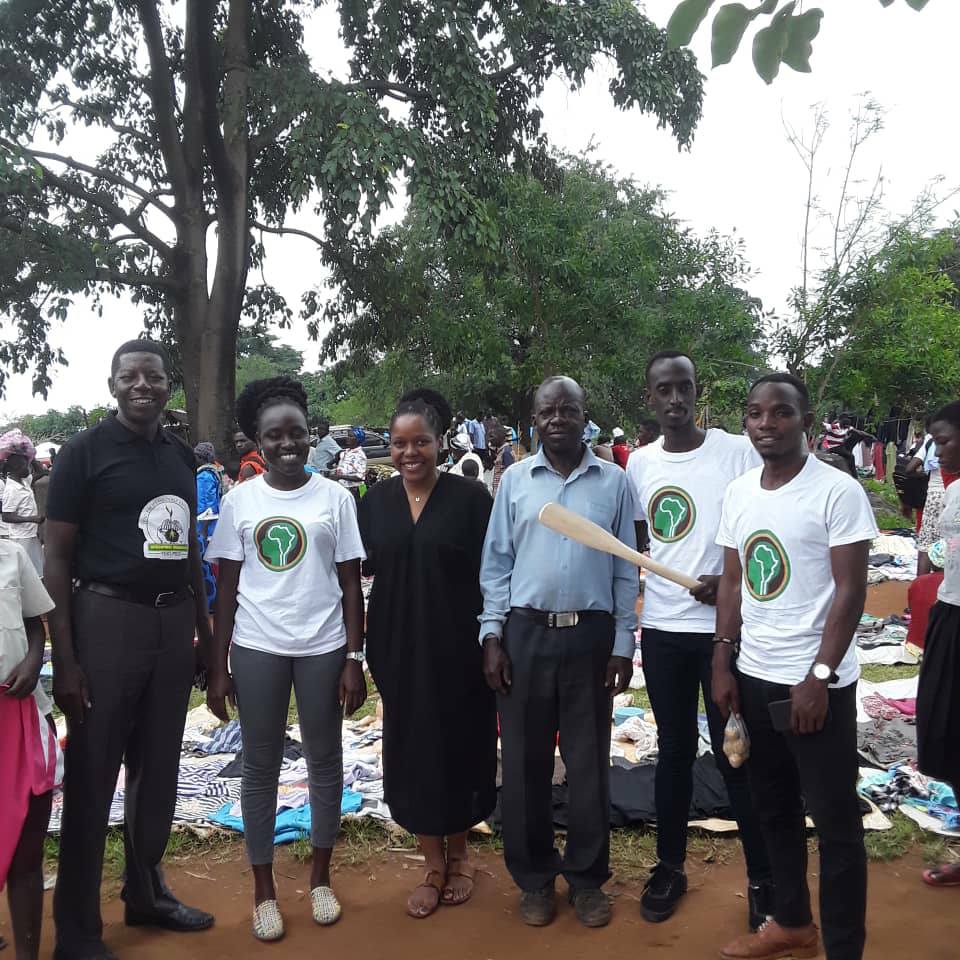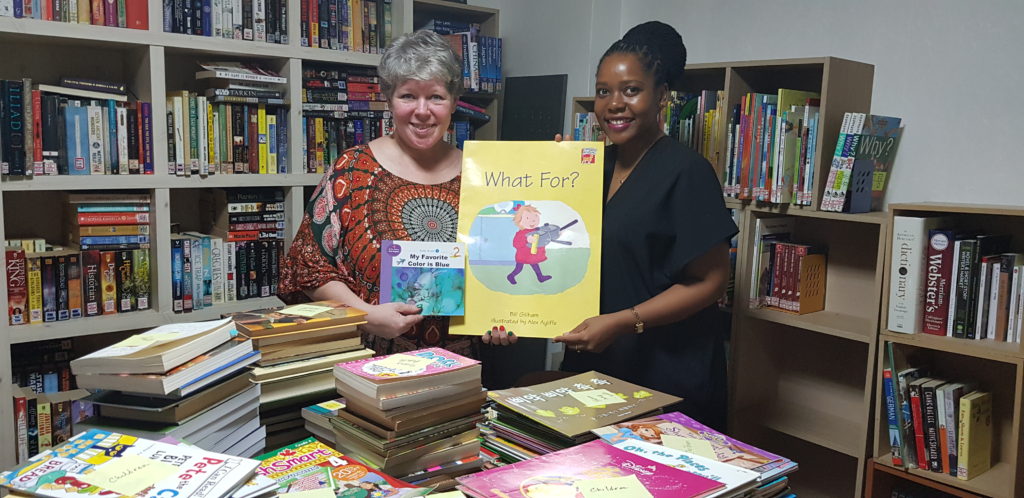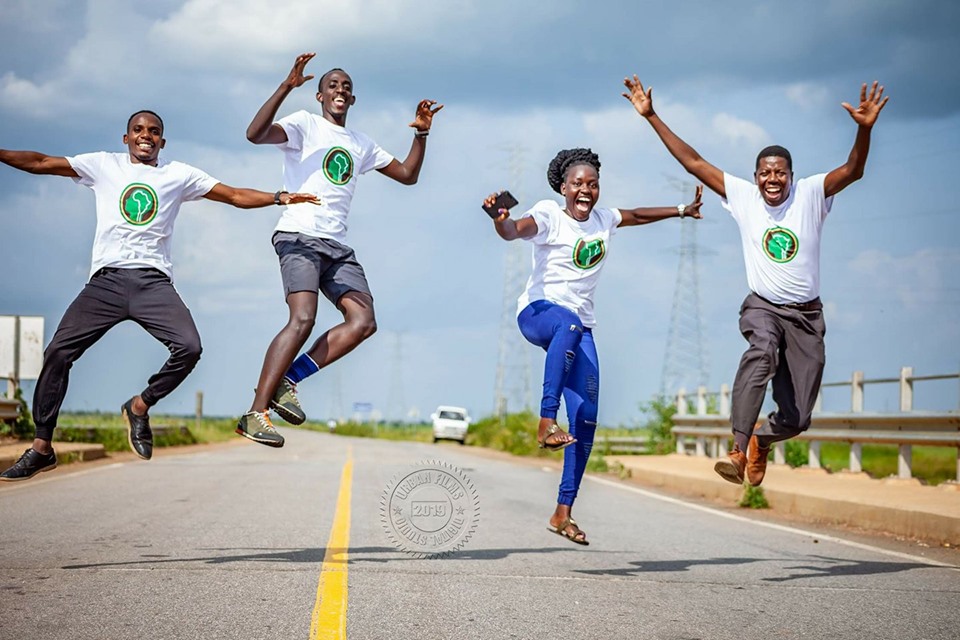“Builders and Brainchilds” Supports Ugandan Primary School
Written by Mary Abura.
Akadot is a land of bounty in Uganda interspersed with self-propagating tropical fruit. Though poverty is prevalent, people are joyful despite living off subsistence farming. Akadot Primary School has a staggering 1,048 students distributed amongst only nine teachers. One particular teacher is said to instruct over 200 students. What is more, Akadot Primary School also supports twelve other schools as the only examination center in the area. Therefore, the stakes could not be higher for ensuring the success of the current Akadot Primary School project, supported by the educational assistance provider Builders and Brainchilds.
As the project coordinator, I spent the last week of the school term training the teachers at Akadot Primary School on how to use the math and literacy educational boxes provided by R.I.C. Publications. The teachers found the material extremely helpful, as it supports the recent USAID-funded RTI (Response to Intervention) training they recently received. Our Builders and Brainchilds volunteers engaged in the following activities with the students: chess, learning the alphabet, sight word classes, graded readers, picture book reading, coloring and drawing, “Suspend” (a problem-solving and special ability builder activity), and soccer. The group successfully introduced baseball and volleyball to the school as well.

While Builders and Brainchilds did well to partner with the GIC (Gwangju International Center) to supply stationery and literacy materials, we could not avoid a common pitfall of development. As they say, “Solving one problem inadvertently creates another.” USAID donated three metal boxes for storing the student and staff books, but the small four-foot-square room available, which serves as the staff room, does not have enough room to store all the books. In the absence of a storage container, the staff informed the team of the region’s infamous termite problem – they ravage through any unattended and unsecured wood (school benches) and paper (student books). In light of the anticipated shipment of more literacy material from the GIC, the staff offered an abandoned structure to store the material in.
The headmaster said of this additional storage space, “It of course needs some reinforcement and plastering, but the books can be kept there,” as we sat under a large mango tree to discuss matters at the start of the week. While Builders and Brainchilds initially explored the possibility of raising funds to refurbish the abandoned structure, due to internal challenges within Akadot Primary School, a request will be made to Irish Aid to help refurbish the building. Irish Aid has a stronger footing in Uganda and has successfully built entire schools in the region with local contractors. Once the building is renovated, a literacy center is to be established there with the goal of children reading a new book each week. Two teachers will manage this program, reporting to Builders and Brainchilds periodically.

The author (third from left) with the staff at Builders and Brainchilds.Here is some additional feedback from our volunteers.
“I had a discussion with the teachers on issues pertaining to the long-term goals of the project and how best we could be of help in our absence. Looking back on the activities, we did engage with the students. I strongly believe it was positively impactful. The children learned new games and have been forthcoming in learning and reading the flash cards and storybooks, among other things. The materials do fit the situation at hand, and I am confident that this project will become a success.” — Mugisha Enock
“In continuation, we have been able to identify some challenges. In class, I have realized that the pupils have a big challenge with reading texts, for example, short stories and simple words like names of animals, fruits, and other things that surround us. I think this problem is caused by a lack of reading materials. From my experience, I can tell that these pupils really have great potential, and if they had these writing and reading materials from the start, they would have now been at a level high enough to compete with pupils in Kampala, where everything is available to them (Kampala, being the capital, has better-provisioned schools). Furthermore, the ratio of pupils to teachers is too wide; this makes learning hard for the pupils and teaching also very hard for the teachers.” — Monica Mahitta
“They need to improve their grammar. Most of the children don’t know English because they are taught in their native language.” — Mutumba Ronald

The author (right) and Maria Lisak organize the book donations from the Gwangju community.The local partner organization for the Akadot Village Project of which the Akadot Primary School project is a part is Teso Professionals Enterprise Development Organisation (Teso PEDO). It facilitates and supports the coordination, implementation, and supervision of the Akadot programs, in addition to the establishment of economic projects for poultry and tree planting already earmarked in the region. All surviving alumni and supporters will be asked to pull together to make the Akadot Village Project a sustainable one.
Going forward, to make such intervention educational projects possible, we hope to strengthen our partnership with the GIC in providing literacy resources. In the coming month Builders and Brainchilds is going to set up more platforms where Koreans and expats alike can donate directly to our community outreach projects. We are exploring the possibility of monthly subscription donations, as well as once off donations.
Photographs courtesy of Builders and Brainchilds
The Author
After graduating with a Masters in Development Cooperation from Ewha Womans University in Seoul, Mary Abura hit the ground running: Builders and Brainchilds, an educational social enterprise, was founded. The mission at Builders and Brainchilds is simple: to build people and develop communities through education. Builders and Brainchilds is a dedicated group of education consultants working to improve selected Global South communities through education initiatives. After spending a year building a technocratic network, Builders and Brainchilds’ next phase is to expand their visibility and community.




